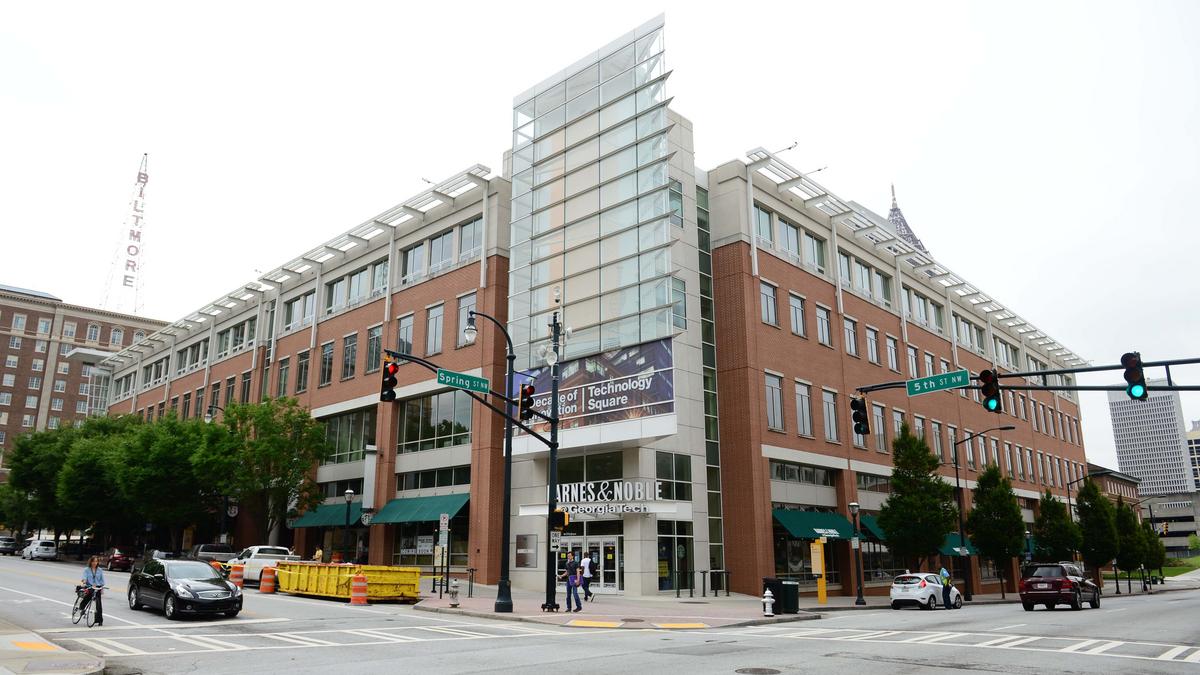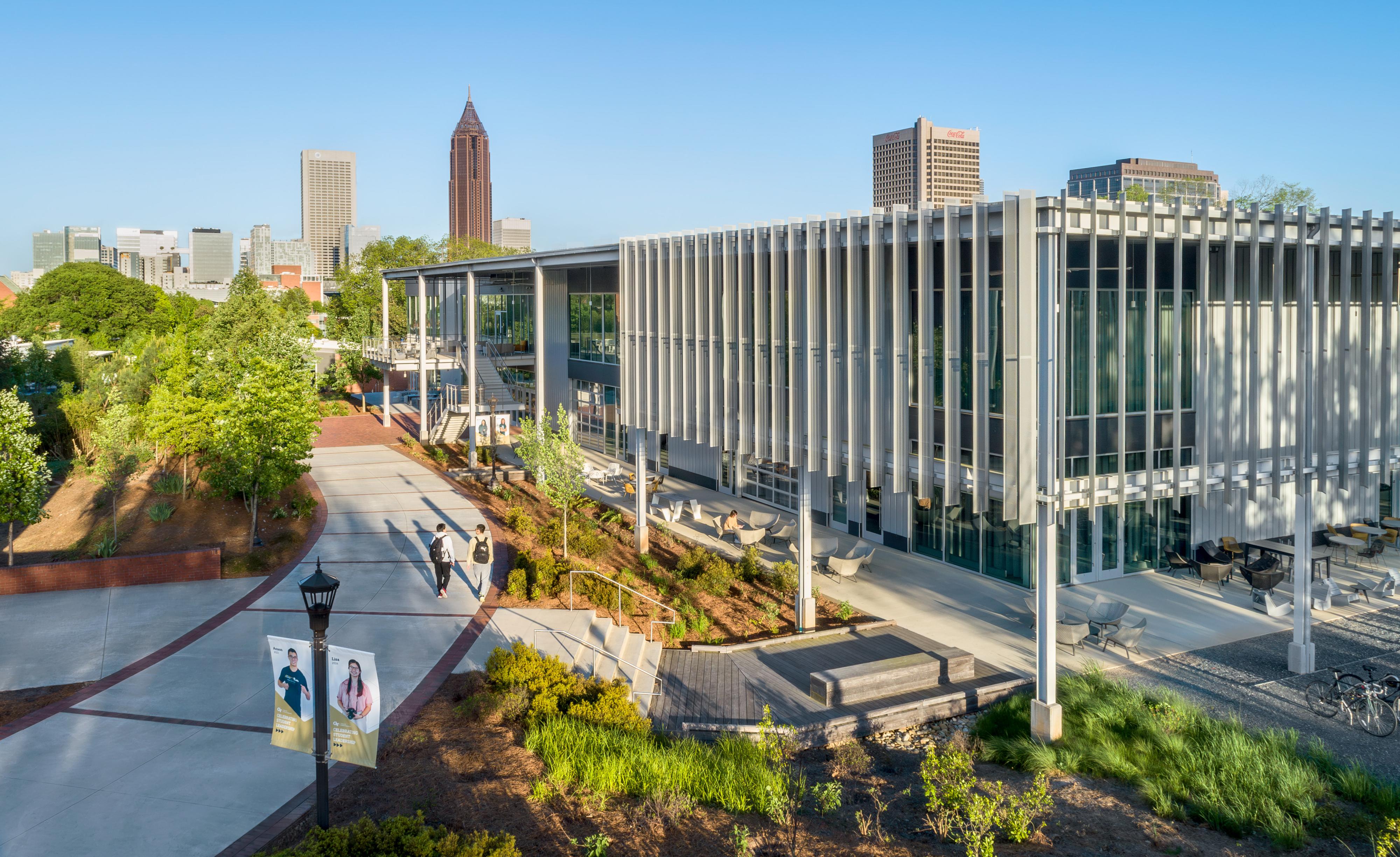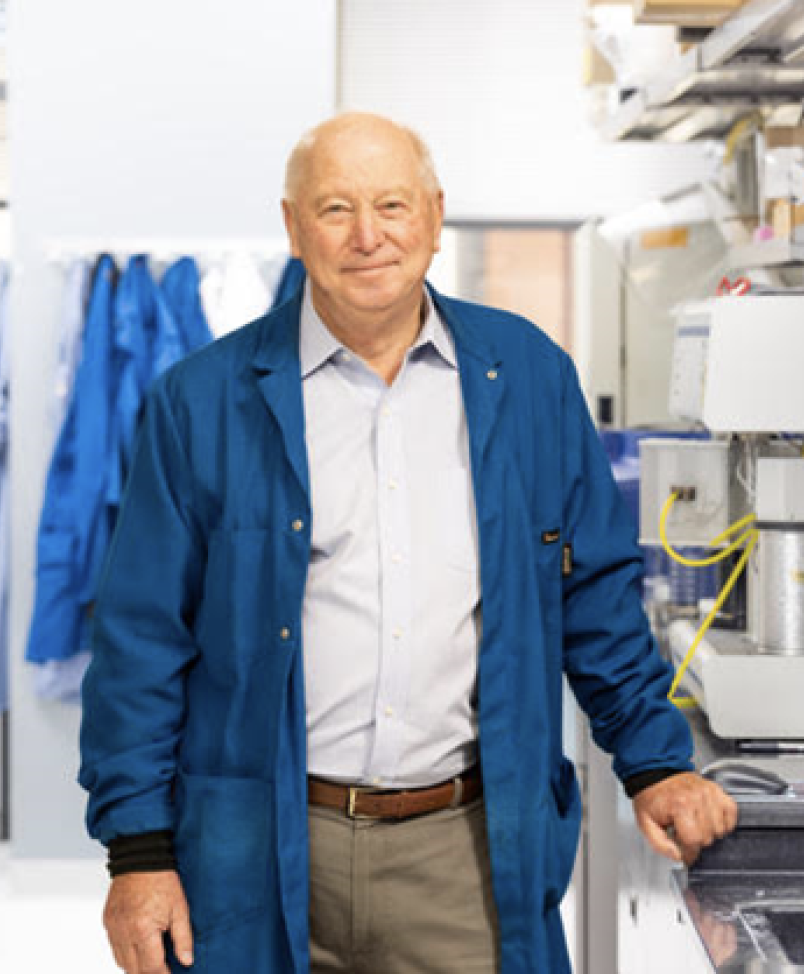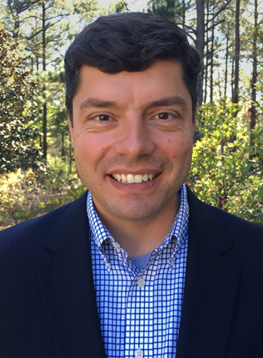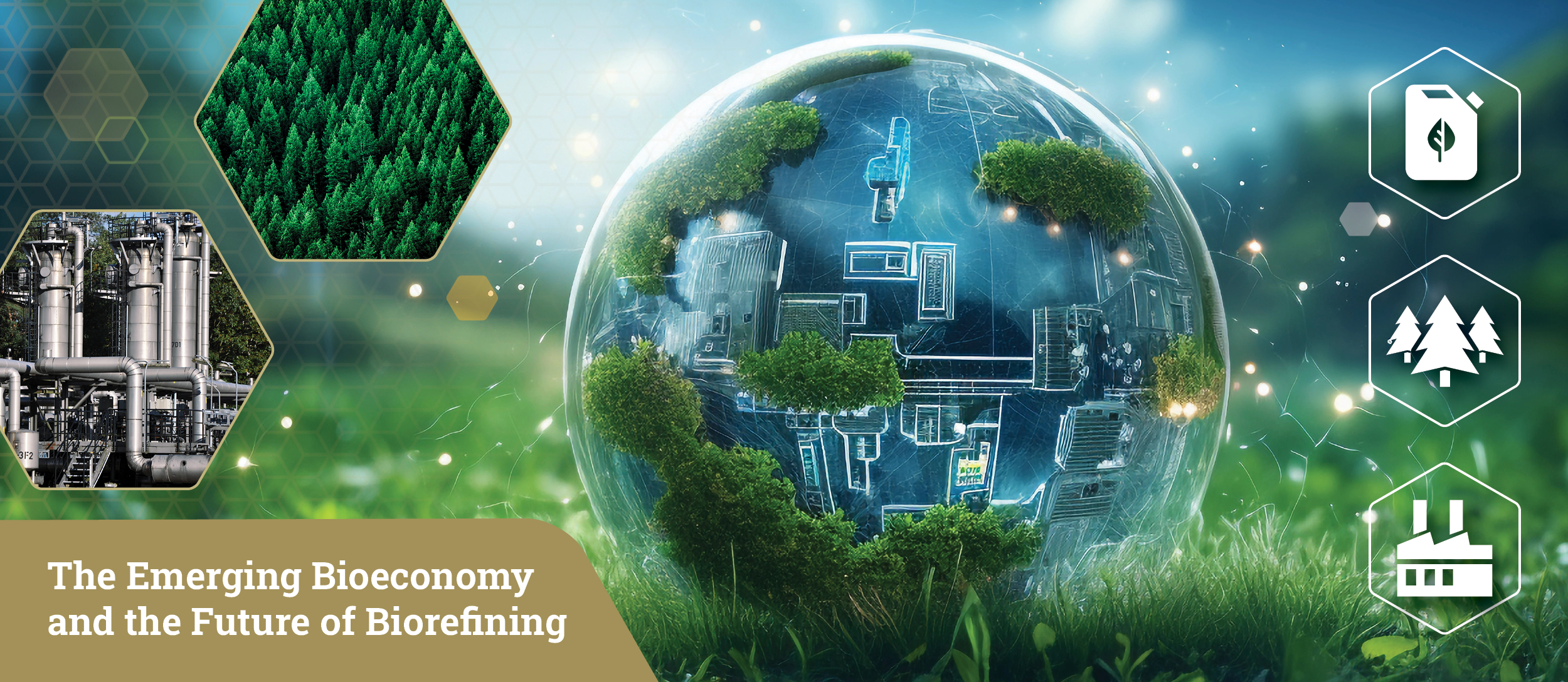
2024 RBI Spring Workshop
The Emerging Bioeconomy and the Future of Biorefining
Monday, March 4, 2024 | 1:00 p.m - 5:00 p.m. EDT (Banquet Dinner at 6.00 p.m.)
Tuesday, March 5, 2024 | 8:00 a.m - 12:30 p.m. EDT
sponsored by
The Renewable Bioproducts Institute
Location: Georgia Tech Exhibition Hall
460 4th St NW, Atlanta, GA 30332
The Renewable Bioproducts Institute hosted a one-and-a-half-day in-person workshop on "The Emerging Bioeconomy and the Future of Biorefining.“ Workshop attendees learnt about cutting-edge developments in this up and coming field and had an opportunity to network with leading researchers and peers from the industry. Speakers included:
- Frank Gupton, Virginia Commonwealth University
- Blake Simmons, Lawrence Berkeley National Lab
- Mi Li, University of Tennessee
- Bronson Bullock, University of Georgia
- Kim Nelson, CTO Nanocellulose, GranBio USA
and many more...
The emerging bioeconomy signifies a shift towards utilizing biological resources for sustainable production, with biorefining at its core. Biorefineries play a pivotal role in converting biomass into biofuels, biochemicals, and bioproducts, fostering a circular economy, reducing reliance on fossil fuels, and promoting environmentally friendly industrial practices. This symposium will bring together academia, national labs, and industry to learn from each other and explore the frontiers of this emerging area.
Georgia Tech's Research Community
The workshop provided an excellent opportunity for external organizations to interact with Georgia Tech students and faculty involved in renewable bioproducts research. Attending the symposium offered a comprehensive and immersive experience, providing access to knowledge, opportunities to network, and a platform for collaboration for the attendees to positively impact their understanding and involvement in this rapidly evolving field.
Student Poster Session & Guidelines
The workshop included a poster session that provided industry interaction for RBI fellows and to communicate the breadth of research supported by RBI. Even if a project has just getting started this year, students presented their work as it was a good opportunity to share the project scope and goals and receive useful feedback.
The poster session was on March 4th at 5-6pm in-person, and was followed by a banquet dinner with keynote presentation.
Poster Session Guidelines Available here.
Agenda
| MONDAY, MARCH 4, 2024 | |
| Time | Activity |
| 12:30 p.m. - 1:00 p.m. | 2024 RBI Spring Workshop Registration |
| 1:00 p.m. - 1:10 p.m. | Welcome Speaker: Carson Meredith | Executive Director, Georgia Tech Renewable Bioproducts Institute |
| 1:10 p.m. - 2:00 p.m. | Keynote: Strengthening the U.S. Pharmaceutical Supply Chain in a Post-Pandemic World Speaker: B. Frank Gupton, Department of Chemical and Life Science Engineering, Virginia Commonwealth University |
| 2:00 p.m. - 2:45 p.m. | Lignin-Derived Phenol – The New Platform of Biorefineries Speaker: Carsten Sievers, School of Chemical and Biomolecular Engineering, Georgia Tech |
| 2:45 p.m. - 3:00 p.m. | Break |
| 3:00 p.m. - 4:00 p.m. | Towards Integrated Biorefining Processes in Kraft Mills by Multicomponent Separations and Catalytic Conversion Speaker: Sankar Nair, School of Chemical and Biomolecular Engineering, Georgia Tech |
| 4:00 p.m. - 5:00 p.m. | Student Panel: The Future of Biorefineries: Student Perspectives on the Challenges in Multi-domain Research Projects Panelists: Marco Avendano, Jianpei Liao, Thomas Wang; Wenbo Pang, Xu Xintong, Georgia Tech |
| 5:00 p.m. - 6:00 p.m. | Poster Session & Reception |
| 6:00 p.m. - 8:00 p.m. | Dinner Followed by Keynote Presentation Keynote: The Role of Technology Development in Supporting Georgia's Forest Sector Speaker: Andres Villegas, President & CEO, Georgia Forestry Association |
| TUESDAY, MARCH 5, 2024 | |
| 9:00 a.m. - 9:30 a.m. | Continental Breakfast |
| 9:30 a.m. - 10:30 a.m. | Keynote: Future of Biorefining Speaker: Blake A. Simmons, Division Director of Biological Systems & Engineering, Lawrence Berkeley National Lab |
| 10:30 a.m. - 11:30 a.m. | Panel: Hot Topics in Life Cycle Assessment Panelists: Patritsia Stathatou, Research Scientist, Renewable Bioproducts Institute; Valerie Thomas, School of Industrial and Systems Engineering, Georgia Tech; Matthew Realff, School of Chemical and Biomolecular Engineering, Georgia Tech |
| 11:30 a.m. - 12:30 p.m. | Data-driven Biorefinery Process Control: Waste Refinery Under Feedstock Uncertainty Speaker: Zhaohui (Julene) Tong, School of Chemical and Biomolecular Engineering, Georgia Tech |
| 12:30 p.m. - 1:30 p.m. | Networking Lunch & Poster Session |
| 1:30 p.m. - 2:30 p.m. | Biorefinery and Modification of Plant Cell Walls: Where Do We Stand? Speaker: Mi Li, School of Natural Resources, University of Tennessee |
| 2:30 p.m. - 3:30 p.m. | Keynote: Enabling NET-ZERO: Meeting the Global Demand for Sustainable Aviation Fuel and Low Carbon Bioproducts Speaker: Kim Nelson, CTO Nanocellulose, GranBio USA |
| 3:30 p.m. - 3:45 p.m. | Break |
| 3:45 p.m. - 4:45 p.m. | Current Issues and Factors in Quantification of Forest Biomass Feedstocks Speaker: Bronson Bullock, School of Forestry and Natural Resources, University of Georgia |
| 4:45 p.m. - 5:15 p.m. | Closing Remarks Speakers: RBI Spring Conference Chairs - Carson Meredith, Matthew Realff, Andy Bommarius, Zhaohui (Julene) Tong |
Accommodations - Local Hotels
Parking
The RBI Spring Workshop is at the Georgia Tech Exhibition Hall.
If you are walking / drop-off, please use the address: Georgia Tech Exhibition Hall, 460 4th St NW, Atlanta, GA 30332.
If you are taking the campus transportation Stinger route, the Gold Route operates on an east-west route through the heart of Georgia Tech’s campus, providing service from the Midtown MARTA Station to the Transit Hub and Student Center.
If you are coming by a personal vehicle, the closest parking is adjacent to the Exhibition hall - W2 parking - GPS address is 355 Ferst Drive NW, Atlanta, GA.
About the Speakers
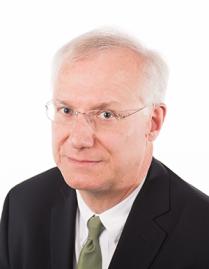
Andy Bommarius
Andreas (Andy) S. Bommarius is a professor of Chemical and Biomolecular Engineering at the Georgia Institute of Technology. He received his diploma in Chemistry in 1984 at the Technical University of Munich, Germany and his Chemical Engineering B.S. and Ph.D. degrees at MIT, Cambridge, MA (1982 and 1989, respectively). From 1990-2000, he led the Laboratory of Enzyme Catalysis at Degussa (now Evonik) in Wolfgang, Germany, where his work ranged from immobilizing homogenous catalysts in membrane reactors to large-scale cofactor-regenerated redox reactions to pharma intermediates. At Georgia Tech since 2000, his research interests cover Green Chemistry, continuous manufacturing, and biomolecular engineering, specifically biocatalyst development and protein/amyloid stability studies. His lab applies data-driven protein engineering to improve protein properties. Foci in biocatalysis are redox biocatalysts and beta-lactam amidases, multiphase reactors, and process stability studies. Dr. Bommarius serves on the PD2M Executive Committee since 2019 and has been the PD2M Programming Chair for 2021 and 2022.
B. Frank Gupton
B. Frank Gupton, Ph.D., is an internationally recognized scholar and industry expert. After attending the University of Richmond on a basketball scholarship, he received his master’s degree from Georgia Tech. He earned his doctorate in chemistry at Virginia Commonwealth University. His 31-year industry career included senior positions with the Hoechst-Celanese Corporation and Boehringer-Ingelheim, where he retired as executive director of process development in 2007. Gupton then joined the VCU College of Engineering faculty and became the Floyd D. Gottwald Junior Chair in Pharmaceutical Engineering in 2016. Dr. Gupton's research focuses on improving global health care by making pharmaceutical production cleaner and more cost-effective. To help advance these goals, he founded the Medicines for All Institute(M4ALL) with a simple idea: expand global access to lifesaving medications by producing them more efficiently. An inventor on multiple patents, including one for his work to produce nanoparticle catalysts supported on graphene, Gupton is a National Academy of Inventors Fellow.
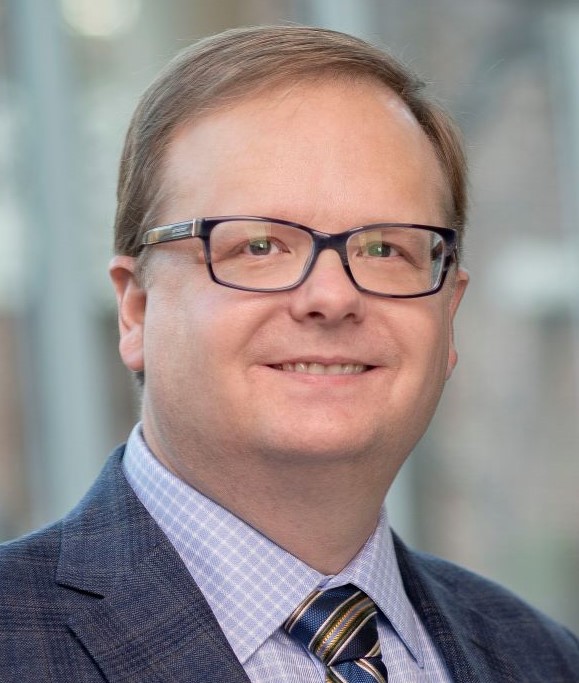
Carson Meredith
Carson Meredith is the Executive Director of Georgia Tech’s Renewable Bioproducts Institute, one of ten interdisciplinary research institutes on the campus. In this role, he is catalyzing an interdisciplinary innovation community engaged in translational research in pulp, paper and packaging, circular materials from biomass, and bioindustrial manufacturing and biorefining. His research interests are biomass-derived renewable and sustainable materials and high-throughput materials discovery and characterization. Dr. Meredith is on the Editorial Board of the journal Green Materials and the External Advisory Boards of the Bioproducts Institute (University of British Columbia) and the Joint BioEnergy Institute (JBEI). He is the winner of the 2023 Georgia Tech Class of 1934 Outstanding Service Award.
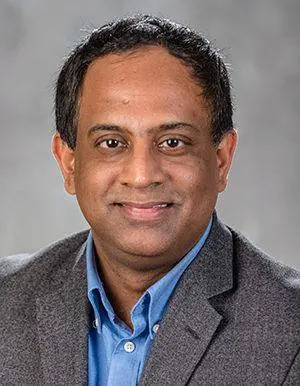
Sankar Nair
Sankar Nair, Ph.D., is a Professor, Associate Chair, and Simmons Faculty Fellow in the School of Chemical and Biomolecular Engineering at Georgia Institute of Technology. He earned his bachelor's degree from the Indian Institute of Technology in 1997 and master's degree and doctorate from the University of Massachusetts, Amherst in 2002. Dr. Nair's research interests are in the science and engineering of nanoporous materials and their use in the development of sustainable chemical processes. Specifically, his research interests focus on
- Creating, understanding, and rationally engineering nanoporous materials and membranes through innovative chemical processing strategies
- Manipulating the unique properties resulting from the reduction of material dimensions to the nanometer length scale or from the nanostructuring of a material
- Basic and applied problems relating directly to renewable/clean energy, carbon capture, advanced separations, catalytic membranes, and nanoscale sensors
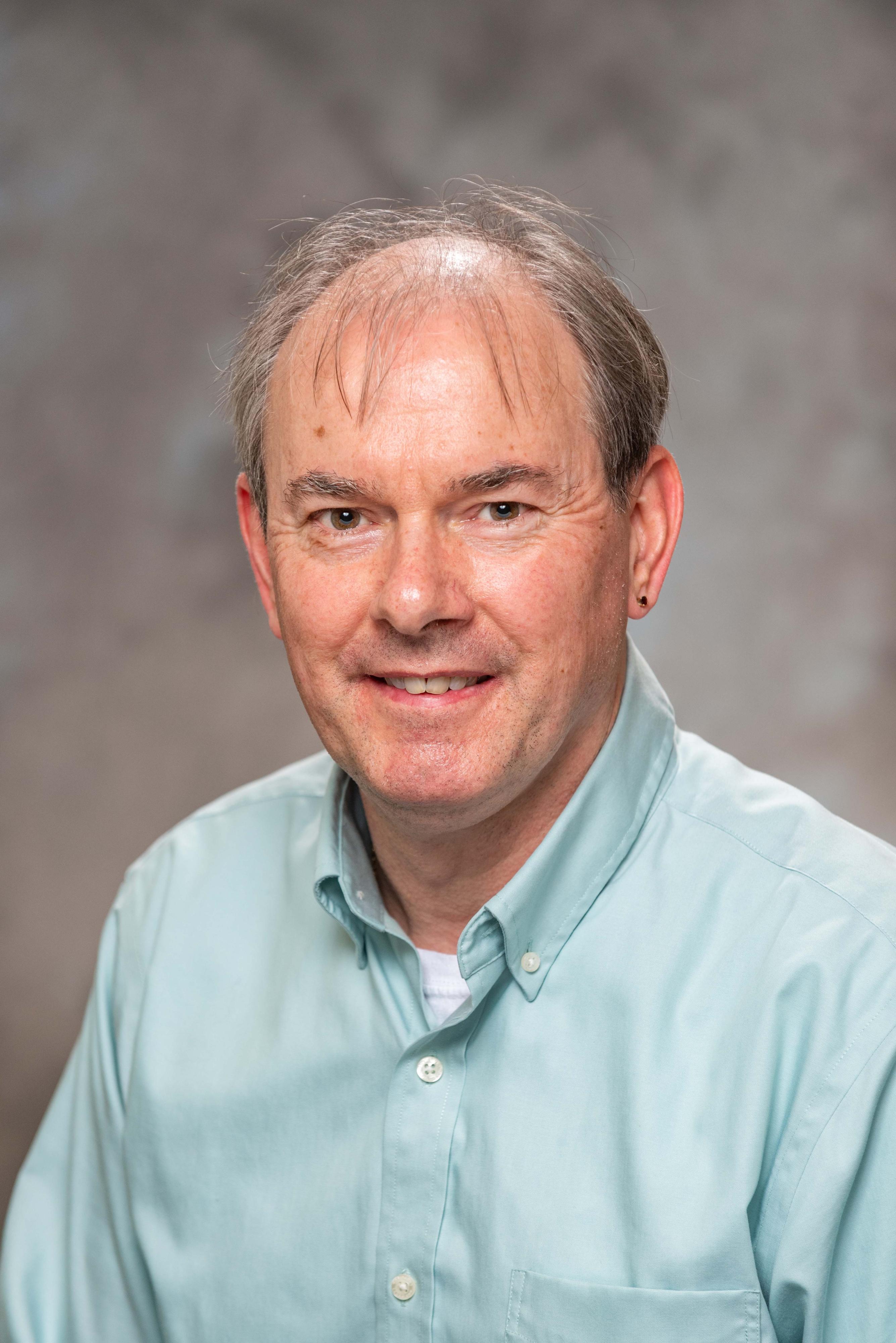
Matthew Realff
Matthew Realff, professor and David Wang Sr. Fellow in the School of Chemical and Biomolecular Engineering, leads the Next Generation Refineries Research Initiative in the Renewable Bioproducts Institute at Georgia Tech. Dr. Realff co-directs the Direct Air Capture Center (DirACC), which coordinates research across the Institute aimed at the removal of carbon dioxide (CO2) from the atmosphere. Dr. Realff’s broad research interests are in the areas of process design, simulation, and scheduling. His current research is focused on the design and operation of processes that minimize waste production by recovery of useful products from waste streams, and the design of processes based on biomass inputs. In particular, he is interested in carbon capture processes both from flue gas and dilute capture from air as well as the analysis and design of processes that use biomass.
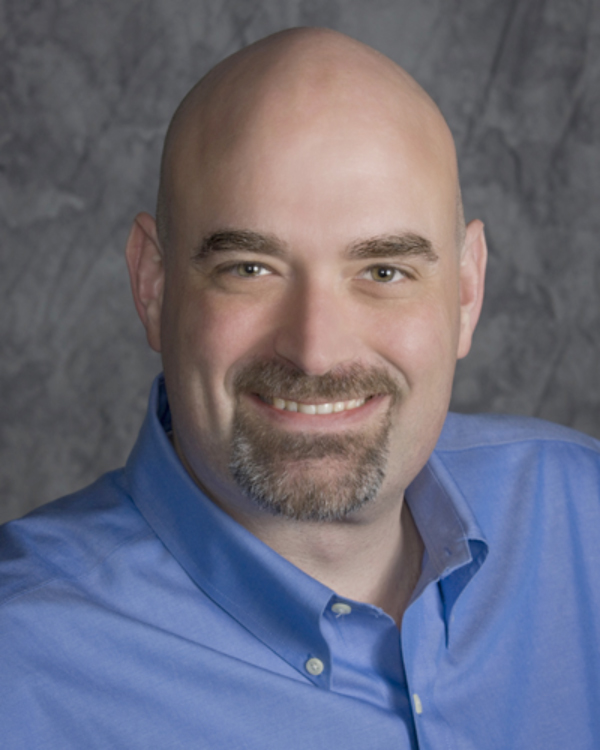
Blake Simmons
Blake Simmons is the Director of the Biological Systems and Engineering Division at Lawrence Berkeley National Laboratory (biosciences.lbl.gov). He also serves as the Chief Science and Technology Officer and Vice-President of the Deconstruction Division at the Joint BioEnergy Institute (www.jbei.org), a DOE Office of Science funded project tasked with the development and realization of next-generation "drop-in" biofuels and bioproducts produced from sustainable, non-food lignocellulosic biomass. After earning his B.S. in chemical engineering from the University of Washington, Dr. Simmons continued his studies at Tulane University and received his doctorate in the same field. After spending 15 years at Sandia National Laboratories, he joined Lawrence Berkeley National Laboratory in February of 2016 as the Division Director of Biological Systems and Engineering. He has over 400 publications and holds more than 50 patents.
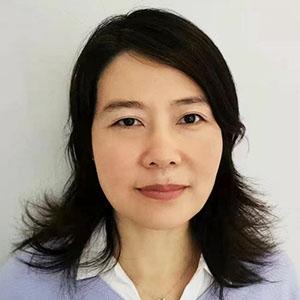
Zhaohui (Julene) Tong
Zhaohui (Julene) Tong is an associate professor in the School of Chemical and Biomolecular Engineering at Georgia Institute of Technology. Dr. Tong's Lab tackles challenges in the interdisciplinary areas of bioresource engineering and sustainable chemistry to develop innovative technologies for producing chemicals, materials, energy, and fuels from renewable resources. Her current research interests include dunctional biomaterials for high-efficiency circular economy, platform chemicals and hydrocarbon fuels from renewable resources, sustainable process control and modeling, nano-biomaterial synthesis and self-assembling, polymer degradation and recycling.
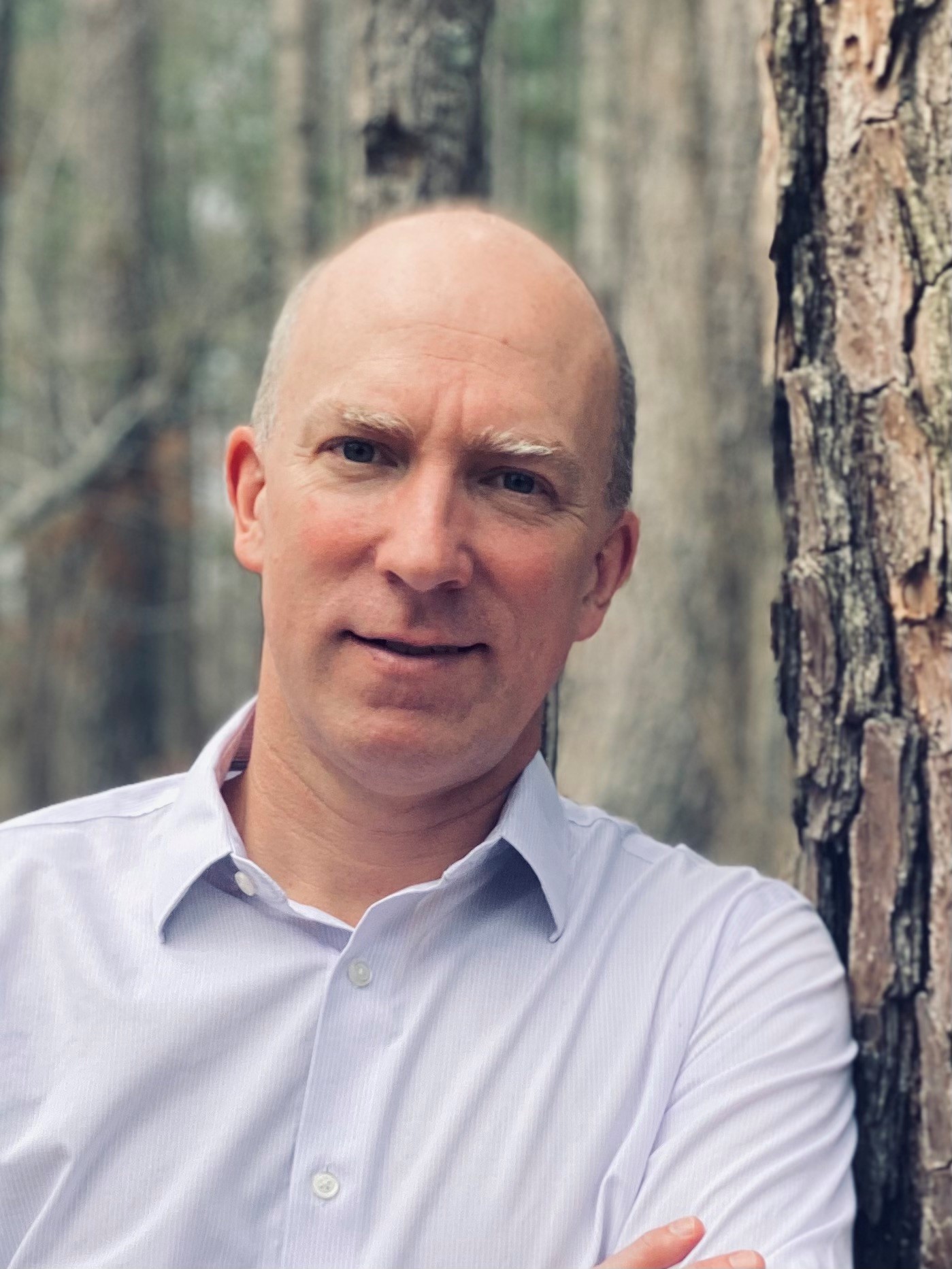
Bronson Bullock
Bronson Bullock has been teaching forest biometrics, forest mensuration, modeling, and sampling at the graduate and undergraduate level since 2002. He teaches the forest mensuration portion of the forestry field summer camp at the University of Georgia and works hard to ensure that the students not only learn the material, but also develop critical thinking, teamwork, and leadership skills. Dr. Bullock's undergraduate forestry degree is from Rutgers University in 1996 and graduate degrees from Virginia Tech – master's in Forest Biometrics (1998); master's in Statistics (2000); and Ph.D. in Forest Biometrics (2002).
There are two core areas that his research has focused on, 1) the effects of genetic background on growth characteristics and wood quality, and 2) spatial relationships between trees in forested stands. He is also working on numerous other projects to answer a wide range of forest biometrics research questions, e.g. taper, volume and green weight equations; growth and yield models; characterization of model error; mid-rotation treatment effects; and numerous research projects with the Plantation Management Research Cooperative (PMRC) at UGA. Dr. Bullock is an active research collaborator with both internal and external colleagues, as well as with forest industry partners. Additionally, he has international forest biometrics research ongoing in Sweden and Finland.
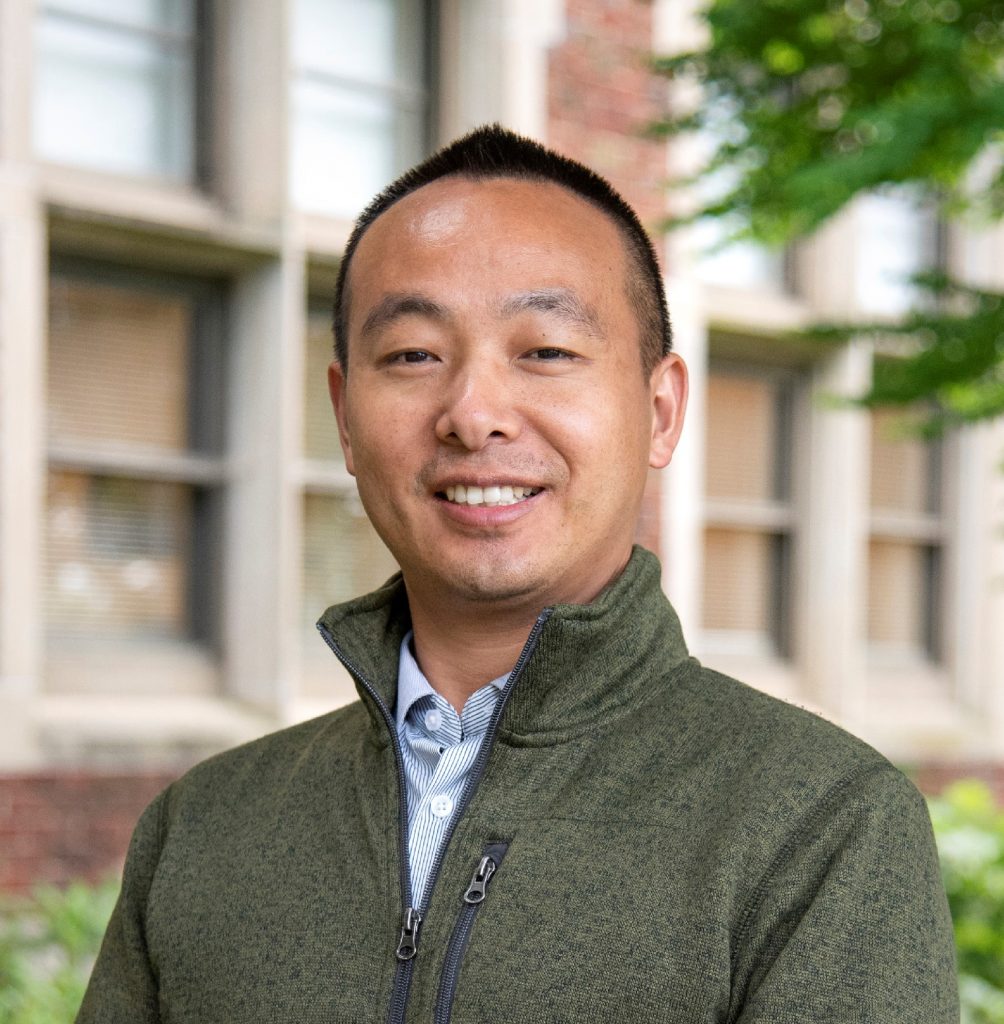
Mi Li
Mi Li is an Assistant Professor in Biorefinery and Biopolymer Chemistry at the Center of Renewable Carbon, School of Natural Resources, University of Tennessee Knoxville. Dr. Li earned his doctorate in Wood Science from Auburn University. He has contributed to more than 70 peer-reviewed journal publications and 3 book chapters. Dr. Li also serves as the Chair of the ES-220 Bio-based Energy, Fuels and Products Committee for the American Society of Agricultural and Biological Engineers. He is the recipient of the Oak Ridge Associated Universities Ralph E. Powe 2021 Junior Faculty Award, and the 2017 Distinguished Achievement Award at Oak Ridge National Laboratory. He is currently interested in circular biorefinery by developing bio-derived functional materials and biodegradable and chemically recyclable polymers.
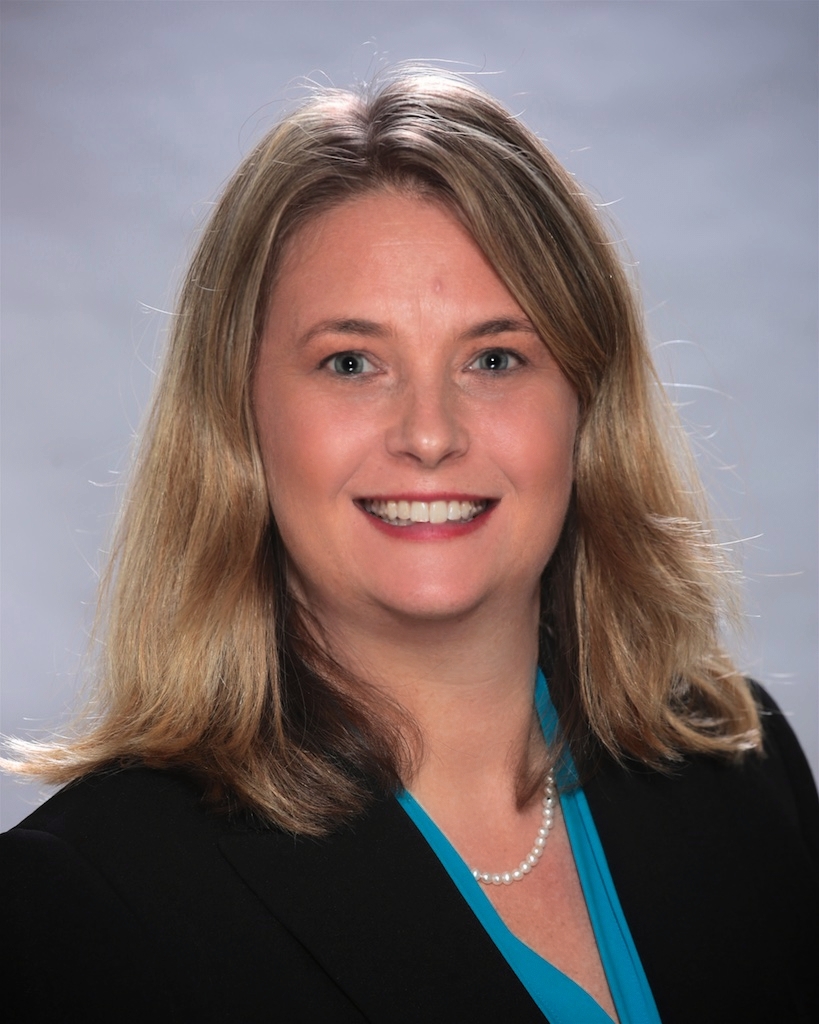
Kim Nelson
Kim Nelson is CTO at GranBio Technologies. She has more than 15 years comprehensive innovation scale-up and business development experience. Dr. Nelson holds 20+ patents and 50 patents-pending in the biorefinery and nanocellulose fields. She has extensive experience managing research and development projects, joint development projects with nanocellulose end-user companies, and government funded projects. Dr. Nelson has secured a large portfolio of government grants including, most recently, $80 million from the department of energy for scale-up of Sustainable Aviation Fuel and nanocellulose co-product production.
Dr. Nelson obtained a Ph.D. in Chemical Engineering at Georgia Institute of Technology and a Master of Science from the Institute of Paper Science and Technology at Georgia Tech. She is on the Executive Board of Directors of the Technical Association of the Pulp and Paper Industry (TAPPI) and was recently named one of the outstanding leaders of the bioeconomy by the Biofuels Digest.
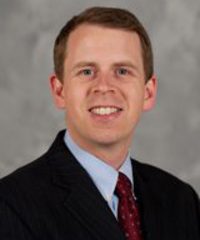
Carsten Sievers
Carsten Sievers is a professor in the School of Chemical and Biomolecular Engineering at the Georgia Institute of Technology and leads the "Maximizing the Value of Products from Plastics Upcycling" initiative at the Renewable Bioproducts Institute. Carsten Sievers obtained his Diploma and Dr. rer nat. degrees in Technical Chemistry at the Technical University of Munich, Germany. Under the guidance of Professor Johannes A. Lercher, he worked on heterogeneous catalysts for various petrochemical processes. In 2007, he moved to the Georgia Institute of Technology to work with Professor Christopher W. Jones and Professor Emeritus Pradeep K. Agrawal as a postdoctoral fellow. His primary focus was the development of catalytic processes for biomass depolymerization and synthesis of biofuels. He joined the faculty at the Georgia Institute of Technology in 2009.
Dr. Sievers' research group is developing catalytic processes for the sustainable production of fuels and chemicals. Specific interests are catalyst deactivation and regeneration, mechanocatalysis, plastics upcycling, catalytic processes in aqueous phase, surface chemistry of complex molecules, production of value-added chemicals from biomass, operando spectroscopy, and CO2 capture and conversion. He published over 100 peer-reviewed papers. He is one of the Chairs of the 29th North American Meeting of the North American Catalysis Society (NAM29) and Deputy Editor-in-Chief of Applied Catalysis A: General.
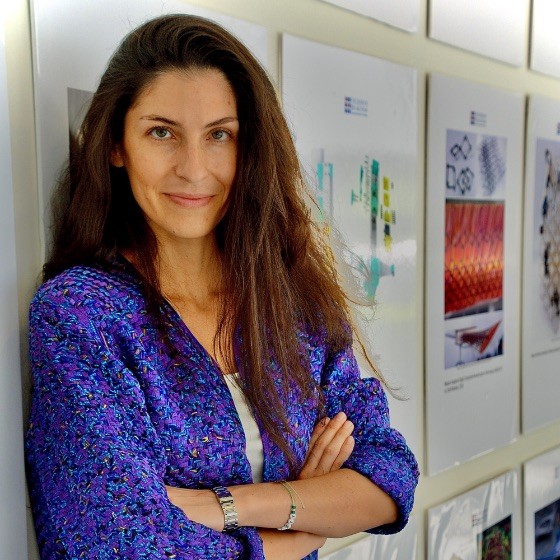
Patritsia Stathatou
Patricia Stathatou holds a Ph.D. in chemical engineering from the National Technical University of Athens (NTUA), Greece (2017), and a B.S./M.S. in Civil Engineering (NTUA, 2011). She conducted her postdoctoral research at the MIT Center for Bits & Atoms after winning the Bodossaki Postdoctoral Scholarship, where she was leading sustainability related research and activities including environmental remediation, sustainable energy sources and biomaterials (2018-2022). Dr. Stathatou is a research scientist at the Renewable Bioproducts Institute and her current research focus areas are in biofuels, biomaterials, clean water, climate & environment.
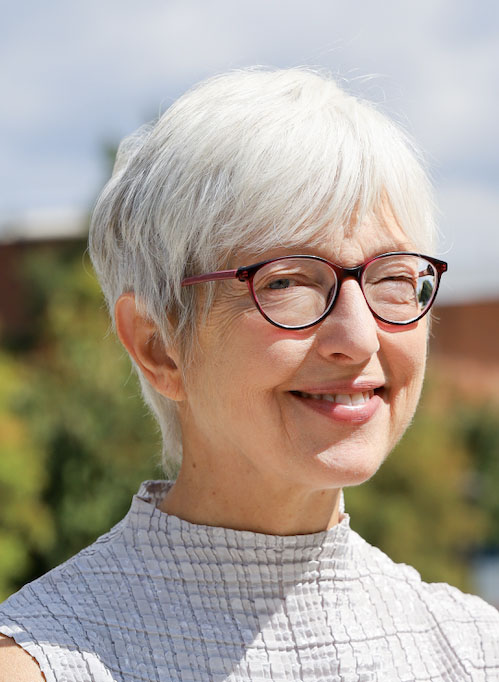
Valerie Thomas
Valerie Thomas is the Anderson-Interface Chair of Natural Systems and Professor in the H. Milton School of Industrial and Systems Engineering, with a joint appointment in the School of Public Policy.
Dr. Thomas's research interests are energy and materials efficiency, sustainability, industrial ecology, technology assessment, international security, and science and technology policy. Current research projects include low carbon transportation fuels, carbon capture, building construction, and electricity system development.
Dr. Thomas is a Fellow of the American Association for the Advancement of Science, and of the American Physical Society. She has been an American Physical Society Congressional Science Fellow, a Member of the U.S. EPA Science Advisory Board, and a Member of the USDA/DOE Biomass Research and Development Technical Advisory Committee. She has worked at Princeton University in the Princeton Environmental Institute and in the Center for Energy and Environmental Studies, and at Carnegie Mellon University in the Department of Engineering and Public Policy.
Dr. Thomas received a B. A. in physics from Swarthmore College and a Ph.D. in theoretical physics from Cornell University.
Andres Villegas
Andres Villegas is President and CEO of the Georgia Forestry Association. In this capacity he is responsible for advocating for Georgia’s $41.3 billion forest products industry. Georgia is the #1 Forestry State in the Nation and Villegas is focused on ensuring that the states 22 million acres of working forests continue to deliver value to Georgia's 10+ million residents through the creation of jobs, clean air, drinking water, wildlife habitat and outdoor recreation opportunities. Andres' role includes engagement with the leadership of the state and nation’s private forest sector and elected or appointed government officials.
Andres has extensive private, public and NGO sector experience in forestry and natural resources having held domestic and international positions with Weyerhaeuser, Chevron, The Langdale Company, and the Georgia Department of Agriculture. His work has focused on implementing sustainable forestry and renewable energy programs in Georgia, North Carolina, Oregon and the country of Uruguay.
Andres was born in Bogota, Colombia and has travelled extensively throughout the world promoting environmental sustainability, trade of food and forest products, and collaborative partnerships. He received a Bachelor of Science in Biological Sciences and a Certificate in International Agriculture from The University of Georgia. He also earned an Executive Certificate of Management and Leadership from the Massachusetts Institute of Technology (MIT) Sloan School of Management.
Student Posters - Details
| RBI Fellow | Major | Poster Title | Advisor(s) |
| Rebecca Banner | MSE | Fabrication of Transistor Paper for On-Demand Microelectronics | Michael Filler, Eric Vogel, Victor Breedveld |
| William Berkey | CHEM | The Synthesis of Enantiopure Heterocycles from Carbohydrate Derived Furans | Stefan France, Christopher Jones |
| Danae Chipoco Haro | MSE | Electrocatalysis for a Bioeconomy: Nitrate Reduction and Lignin Oxidation for Value-added Products | Marta C. Hatzell, Faisal Alamgir |
| Woosung Choi | MSE | Recyclable, Degradable Star-like Polymer with Barrier Properties for Next-Generation Packaging | Vladimir Tsukruk |
| Yacine Feliachi | ChBE | Crosslinked TFC membranes for Complex Organic Mixture Separations | Ryan P. Lively, M.G. Finn |
| Elyssa Ferguson | ME | Sustainably Sourced Natural Fibers for Thermal Insulation in Buildings | Akanksha Menon |
| Tanner Hickman | ChBE | Making Polysaccharide-based Barrier Films Work in High Humidity | Natalie Stingelin, Carson Meredith |
| Elnaz Jamshidi | MSE | Carbon-Negative Building Materials based on Engineered Wood for Structural and Thermal Insulation Applications | Kyriaki Kalaitzidou |
| Hsiang-Ju (James) Kai | ChBE | Unraveling the Physical Chemistry of Polyolefin-Cellulose Interfaces | Natalie Stingelin, Thomas Gartner |
| Dogukan Karahan | ME | Fiber Orientation Analysis in the Entire Headbox | Devesh Ranjan, Cyrus K. Aidun |
| Jungin Kim | ME | Optimizing Properties of Biodegradable Co-Polymers | Yan Wang |
| Akanksha Lakra | ChBE | Functionalization of Cellulose Nanocrystals with Atomically Precise Metal Nanoclusters | Zhaohui Tong, Christopher Luettgen |
| Geng-Sheng Lin | ChBE | Triboelectric Membrane Sensor for Heavy Metal Removal and Detection | Zhaohui Tong |
| Opeyemi Ojelade | ChBE | Catalytic Upgrading of Kraft Black Liquor-derived Hydroxy Acids | Opeyemi A. Ojelade, Sankar Nair, Christopher W. Jones |
| Jimin Park | ChBE | One-pot Mechanochemical Hydrogenation and Acetylation of 4-Nitrophenol to Paracetamol | Andreas Bommarius, Carsten Sievers, Marta Hatzell |
| Kim Anh Pham | MSE | The Effect of CNC Coatings on Glass Fiber Composite Performance | Kyriaki Kalaitzidou, Tequila Harris, Karl Jacob |
| Erin Phillips | CHEM | Mechanocatalytic Arylation of Diazonium Salts using Piezoelectric Catalysts | Carsten Sievers, Marta Hatzell |
| Arjun Thangaraj Ramshankar | CEE | Deconstructing the US Construction sector: Advancing Sustainability in the Built Environment Using a Life Cycle Approach | Joe F. Bozeman III |
| Michael Rettstatt | ChBE | Mechanism of Aqueous Phase Reforming of Organics over Bimetallic Catalysts | Carsten Sievers |
| Javaz Rolle | ChBE | Durable Bio-Based Coatings for Packaging Applications | Carson Meredith, Natalie Stingelin |
| Fariha Rubaiya | MSE | Exploring Out-of-Plane Auxetic Response in Cellulose Nanofibrils (CNFs) Film | Meisha L. Shofner, Lauren M. Garten |
| Lilly Schroer | MSE | Leveraging Strain Field Mining to Map the Heterogeneity of Network Structured Materials | Christopher Muhlstein |
| Talia Thomas | ME | Functionalized Cellulose & Lignin Materials for Next Generation Battery Materials | Matthew McDowell, Robert Moon |
| Quyen Tran | ChBE | A Pathway for Integration of Kraft Processing with Black Liquor Fractionation, Chemical Production, and CCS | Sankar Nair |
| Preksha Vichare | MSE | Improving Mechanical Dewatering of Paper | Blair Brettmann, Victor Breedveld |
| David Witdorchic | ChBE | Introduction of Nitrogen Into Woody Biomass | Andreas Bommarius, Bo Arduengo, Jake Soper, Stefan France |
| Andrew Wu | ChBE | Bio-based Thermo-Reversible Tie Layer for Recyclable Multilayer Packaging | Natalie Stingelin, Kyriaki Kalaitzidou |
| Xintong Xu | ChBE | Data-driven Process for Aviation Fuels and Biochemicals from Forestry Residues | Zhaohui Tong, Carson Meredith |
| Kaung Su Khin Zaw | ChBE | Lignin Micro- and Nano-Particles (LMNP) Production From Pulp and Paper, and Biorefinery Lignin Streams | Sankar Nair, Meisha L. Shofner |
| Li Zhang | MSE | Using ALD to Alter Biodegradation in Cellulosic Fabrics | Mark Losego |

